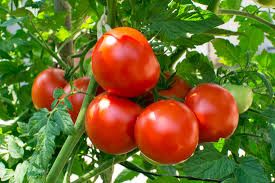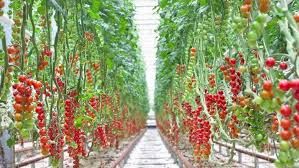
Image Source
Tomato is one of the major vegetables grown in Bangladesh. It is rich in Vitamin A, Babita Carotene (358 micro g / 100 g) and Vitamin-C (28 mg / 100 g). Tomatoes are grown in almost all the districts of Bangladesh. As tomatoes are winter vegetables, the supply increases in the full season and the market price decreases. In this busy season of tomatoes, the picture is almost that many tomato fields are destroyed in the last part of the season. As it is a perishable product and due to poor post-collection infrastructure (inadequate transportation and storage difficulties), a large part of it is lost in the post-collection period. The post-harvest loss of this vegetable is about 30%. Tomatoes cannot be stored at normal temperatures.
Therefore, it is possible to use and supply tomatoes by pulverizing and increasing the storage period to normal temperature. This method not only increases the storage time but also adds value to the product and creates employment. The Department of Post-Crop Technology, Bangladesh Agricultural Research Institute, has developed a method of preserving tomato pulp at normal temperature while keeping the quality unchanged during tomato storage. Using this technology at low cost will prevent wastage as well as increase tomato consumption, meet nutritional needs, reduce losses and, above all, benefit the common man economically at the rural level.

Image Source
Tomato Pulp Preservation Method: After collecting the selected ripe tomatoes, they are washed in clean water and cut into pieces. The pieces are boiled in a pot for 15-20 minutes and then crushed with a wooden handle. To separate the skin and the beech, shake well with a wooden handle. It is separated from the husk and seed pulp by applying pressure through a fine perforated sieve. Separated pulp is to be thickened with mesh in a container (up to 10% TSS). Then 1 g of sodium benzoate (1000 ppm) and 2 g of citric acid (0.2%) were added per kg of tomato pulp. Dense pulp is stored in airtight and sterile containers. Tomato pulp can be stored in this container for 3-4 months in sterile condition. The quality of the pulp does not change during storage. This preserved pulp can then be used in all types of cooking and subsequent processing.